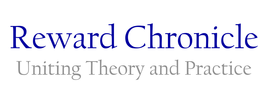|
How to curtail internal misconduct is a constant challenge for most companies, particularly as it can have a significant impact on the company’s reputation and bottom line. A study at the University of South Carolina examined the effects of offering employees financial rewards for reporting internal misconduct on the rate of whistleblowing. The results suggest that offering additional financial rewards can have a positive effect on whistleblowing but that intention to whistleblow is also affected by both an employee’s current compensation level as well as their moral view of misconduct.
Key Topics: Whistleblowing; Employee misconduct; Reward; Compensation
Title of Reviewed Article: When do employers benefit from offering workers a financial reward for reporting internal misconduct?
Researchers: Bryan R. Stikeleather (University of South Carolina). Publication: Accounting, Organizations and Society, 2016, Vol. 52, pp. 1-14. __________________________________________________________________________ Setting the Scene Internal misconduct committed by employees, such as theft, falsifying records, and misuse of company property can lead to significant financial loss for companies (e.g. Moraca & Hollinger, 2015). Often other employees are aware of such misconduct taking place, and sharing of this knowledge with their employer could have significant financial benefits for the company. As such, it is in the interests of companies to identify effective practices that encourage employees to report internal misconduct that they become aware of i.e. to whistleblow. The provision of financial rewards for whistleblowing is one strategy that companies employ (e.g. Moraca & Hollinger, 2015), however there is a general lack of consensus on the effectiveness of this approach (Barlyn, 2011; McLellan, 2015). While some have championed the effectiveness of offering financial reward for reporting internal misconduct (Hirsch, 2012; Katz, 2010) others having advocated protecting employees from whistleblowing retaliation as a more effective strategy in increasing whistleblowing behavior (McLellan, 2015). The compensation levels provided to employees by the company is central to the human resources strategy of most companies, and the implications, both positive and negative, can be significant. Prior research suggests that paying high compensation to employees can encourage them to take more non contractual voluntary actions which improve the company’s interests (e.g. Camerer, 2003), which could include the propensity to whistleblow. Similarly, research suggests that an employee’s moral convictions are an important factor in their propensity to report misconduct (e.g., Ethics Resource Center, 2011). This study endeavored to identify organizational factors that affect the success of offering financial rewards for whistleblowing. Specifically, it examines the role of employees’ current fixed compensation and their sense of moral obligation to report misconduct. The researcher poses a number of research questions for examination: Hypothesis 1a – “Workers will report internal misconduct more frequently as the level of fixed compensation paid to them increases above the market-clearing level.” Hypothesis 1b – “As workers' fixed compensation increases above the market-clearing level, employers will obtain a smaller net economic benefit from offering a financial reward for internal whistleblowing.” Hypothesis 2a – “Workers will report internal misconduct more frequently as their conviction grows stronger that doing so constitutes a moral obligation.” Hypothesis 2b “As workers’ convictions grow stronger that reporting internal misconduct constitutes a moral obligation, employers will obtain a smaller net economic benefit from offering a financial reward for internal whistleblowing.” How the research was conducted 118 participants were used in this study, taken from a pool of students taking an economics class at a large American university. The experiment consisted of three conditions labelled as Unrewarded Whistleblowing, No Whistleblowing, and Rewarded Whistleblowing. Each participant was allocated to one of these groups and assigned the role of either employer or employee. The experiment then involved participants being faced with various scenarios in which they could choose to whistleblow or not when aware of theft. Participants were allocated varying fixed compensation levels, and for whistleblowing were offered additional monetary rewards. Following the experiment, participants completed a post-experimental questionnaire (PEQ) in which they provided details of their views on the morality of reporting misconduct. Key Research Findings Hypothesis 1a was supported as employees’ current fixed compensation was found to have a positive effect on whistleblowing, indicating that employees blew the whistle more frequently as their current fixed compensation increased. In support of Hypothesis 2a, moral obligation was found to have a positive effect on whistleblowing. Responses to the PEQ indicated that the majority of employees believe they have a moral obligation to report misconduct. Hypotheses 1b and 2b posited that companies would obtain a lower economic benefit from offering monetary rewards from whistleblowing as employees’ fixed compensation increases and moral obligation increases. Support was found for both of these hypotheses, as the results indicated that the positive effect of offering whistleblowing reward is mitigated by higher fixed compensation levels and as an individual’s sense of moral obligation to report whistleblowing increases. Results Commentary The results help to clarify some of the conditions under which employees are most likely to whistleblow and suggest that offering whistleblowing rewards to employees significantly increases the likelihood of whistleblowing, although the reaction of employees to the offer of such reward differs across various criteria indicating that certain types of companies are likely to benefit more than others from offering rewards for whistleblowing. The results indicate that the benefit to companies of offering whistleblowing specific rewards are greater when employees have relatively low current fixed compensation, as those with relatively high compensation are already more likely to whistleblow. Also, where employees already feel a moral obligation to whistleblow, there is less benefit in the company offering additional monetary rewards for whistleblowing. Organizational and Reward Implications The primary practical finding from this study is that offering employees a personal financial reward for whistleblowing generally acts as a motivator for employees to whistleblow who might otherwise not have done so. From a policy perspective companies should ensure that such rewards are well communicated in order for them to be understood and effective. Also of interest is the finding that both the level of current fixed compensation and the level of moral obligation towards whistleblowing have an effect on an employees’ likelihood to whistleblow and therefore on the value to the company of offering additional specific financial rewards for whistleblowing. The results suggest that specific additional reward for whistleblowing is likely to be more effective in environments where companies pay fixed compensation below the market median and where employees have a low sense of moral obligation to whistleblow. Companies should be mindful of these behaviors in developing a whistleblowing policy. Final Thoughts This study broadens our knowledge on the effectiveness of offering financial rewards for whistleblowing and some of the organizational factors that can affect that effectiveness. There are various directions that future whistleblowing research would benefit from examining, such as examining the relationship between whistleblowing reward and the propensity to report different types of misconduct, and the role of cost of whistleblowing to the employee and whistleblowing reward. __________________________________________________________________________ Source Article: Stikeleather, B. R. (2016). When do employers benefit from offering workers a financial reward for reporting internal misconduct? Accounting, Organizations and Society, 52, 1-14. Published by: Elsevier Ltd For further details and access to the full journal article Click Here (subscription or payment may be required). __________________________________________________________________________ References: Barlyn, S. (2011). Companies debate rewards for whistleblowers. Retrieved January 1, 2014, from http://financialadviserblog.dowjones.com/blog/stay-ahead-of-yourclients/companies-debate-rewards-for-whistleblowers. Camerer, C. F. (2003). Behavioral game theory: Experiments in strategic interaction. Behavioral game theory: Experiments in strategic interaction. Princeton University Press. Ethics Resource Center, (2011). Inside the mind of a whistleblower. McLellan, L. (2015). Should employers offer financial incentives for whistleblowing? Retrieved June 10, 2016, from http://expolink.co.uk/whistleblowing/blog/should-employers-offer-financial-incentives-for-whistleblowing. Moraca, B., & Hollinger, R. (2015). The 2015 national retail security survey. Comments are closed.
|
Popular Reward Chronicle Searches
Compensation. Pay for performance Benefits Millennials Exec compensation Motivation Gender Topics
All
Join The Reward Chronicle Team
Are you passionate about reward? We’d love to hear from you. Click here for more details on how to contact us. |








